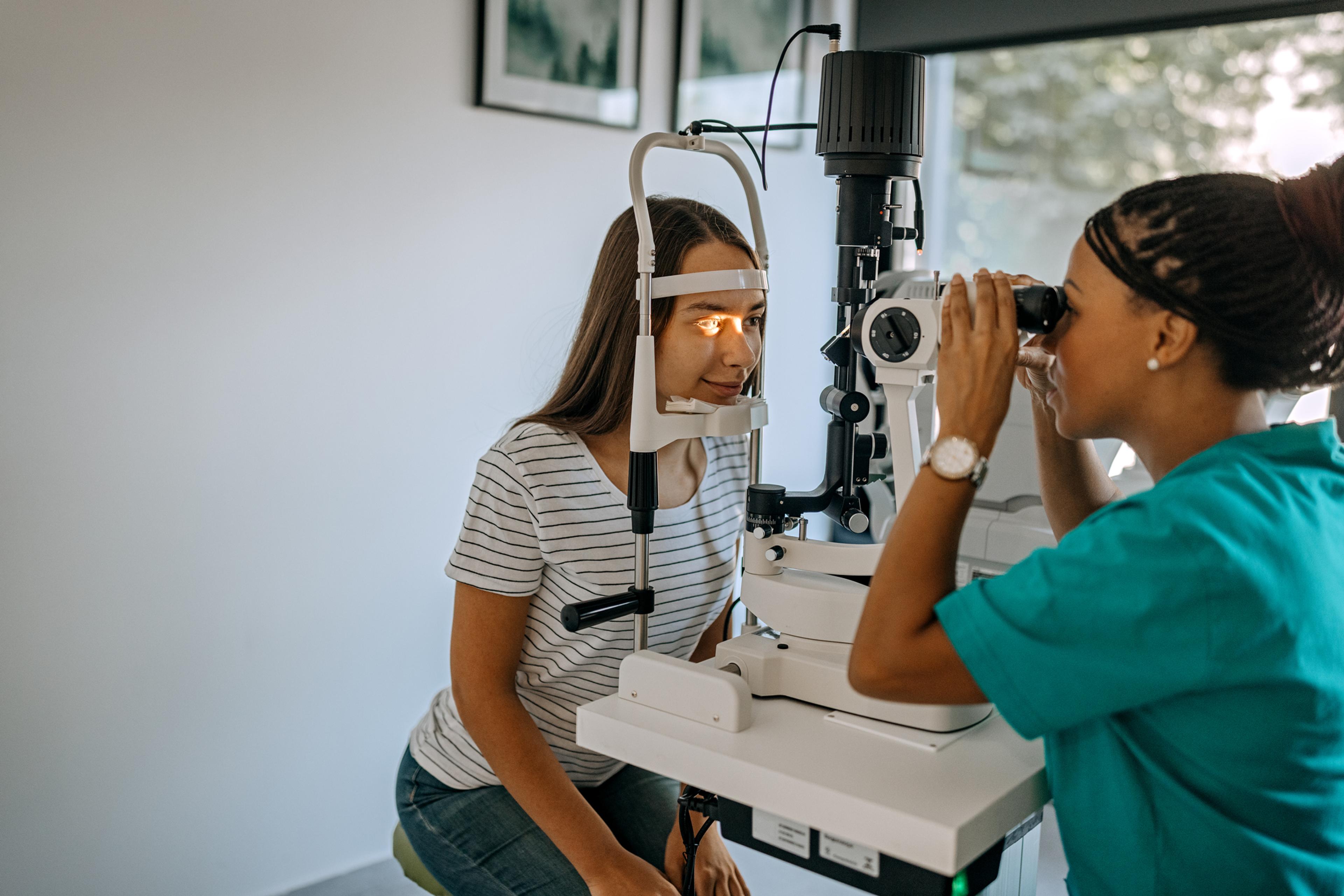Why Eye Exams are So Important for Children with Diabetes
Amy Barczy
| 3 min read
Amy Barczy is a former brand journalist who authored content at Blue Cross Blue Shield of Michigan. Prior to her time at Blue Cross from 2019-2024, she was a statewide news reporter for MLive.com. She has a decade of storytelling experience in local news media markets including Lansing, Grand Rapids, Holland, Ann Arbor and Port Huron.

More than 210,000 children and adolescents under the age of 20 have diabetes – a number that is projected to increase in the coming decades.
For individuals with diabetes – including children, teens and young adults – annual eye exams are an important part of tracking and managing their condition. That’s because blood sugar levels can affect your eyes.
Even with normal vision and no symptoms, diabetes could be slowly affecting your eyes in a way that only a trained eye doctor can see.
Early detection of eye conditions caused by diabetes can help keep them from getting worse. One of the main concerns is diabetic retinopathy, in which the blood vessels in the eye’s retina can leak, bleed and grow abnormally – to the point that they could cause blindness. Diabetic retinopathy is the leading cause of blindness among adults in the U.S.
More than one in five youth with type 1 diabetes and 7% of youth with type 2 diabetes have diabetic retinopathy, according to a national study.
Screening for diabetic retinopathy
The American Academy of Ophthalmology currently recommends that children with type 1 diabetes have annual screenings for diabetic retinopathy beginning at age 15, or 5 years after the onset of their disease, whichever occurs later. For those with type 2 diabetes, they should have an examination at the time of diagnosis and at least once a year thereafter.
Screening for diabetic retinopathy is done during a comprehensive eye exam, which is different from the vision screening that may be offered at the doctor’s office, or in a school setting. During a comprehensive eye exam, eye doctors dilate the eye using eye drops and use specialized equipment to view the retina and examine it for signs of retinopathy.
Treating diabetic retinopathy
Diabetic retinopathy is treatable. In addition to following your doctor’s treatment plan for diabetes to control your blood sugar levels, your eye doctor may recommend medication injections to the eye, or surgery.
When children need to see the eye doctor
From the time they are born to early childhood, all children will likely undergo a vision screening at a well-child visit. This is an efficient way for health care providers like a pediatrician, family doctor or other trained health care provider to look for signs eye problems. If anything is detected, they will refer the child to an ophthalmologist for a comprehensive eye exam.
Vision screenings are typically done at the following ages:
- Newborn
- 6-12 months
- 12-36 months
- 3-5 years
At ages 5 and older, all children should be examined by an eye doctor for nearsightedness, alignment and other signs of eye problems.
The American Academy of Ophthalmology advises parents should seek a comprehensive eye exam from an eye doctor in the following cases:
- If their child fails a vision screening
- If the vision screening is inconclusive or hasn’t been conducted
- If they are referred by a pediatrician or school nurse
- If their child has a vision complaint, abnormal visual behavior or is at risk for developing eye problems
- If their child has a learning disability, developmental delay, neuropsychological condition or behavioral issue
For children with diabetes, it’s especially important to talk to their doctor about when and if they need annual eye exams with an ophthalmologist.
Children up to age 19 may be eligible for an eye exam every year through their health insurance plan. Many health plans can help with the cost of treatment for a vision problem as well. Blue Cross Blue Shield of Michigan and Blue Care Network members can check their benefits and find an in-network vision provider by logging in to their member accounts at bcbsm.com.
Photo credit: Getty Images





